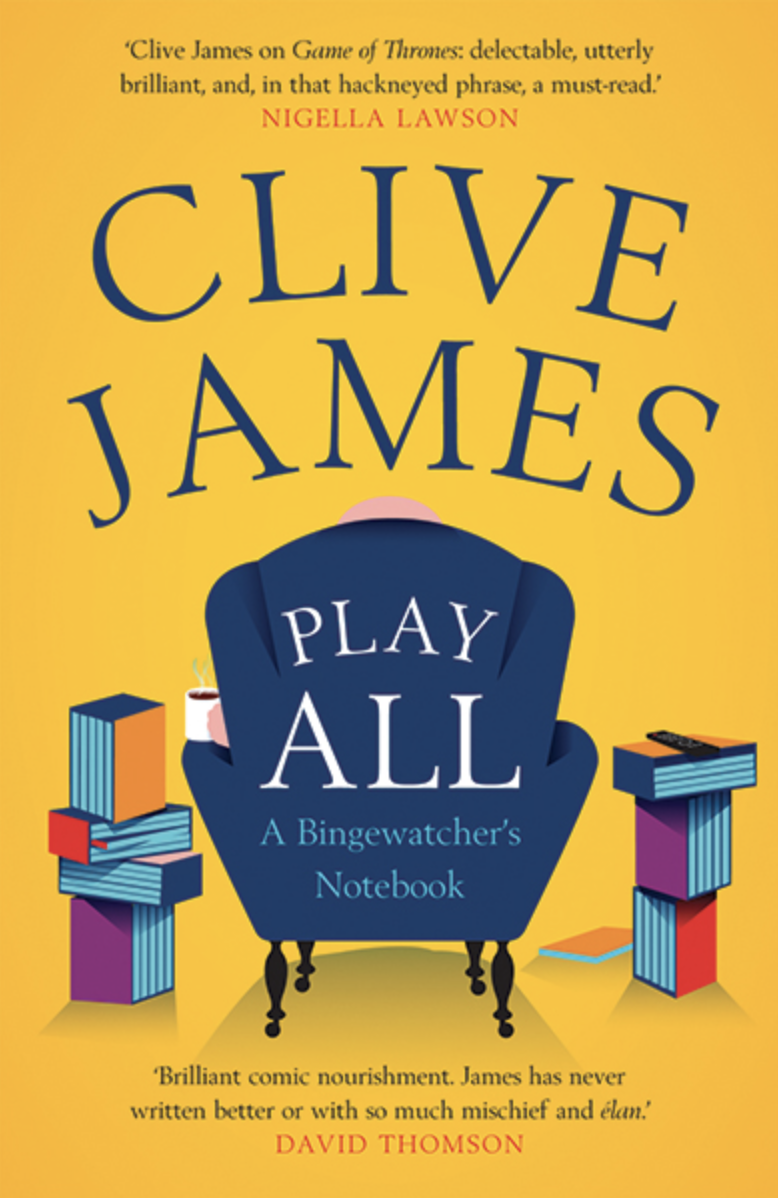Play All
|
Subtitle: A Bingewatcher's Notebook
Yale University Press, 2016 Apart from a few paragraphs of a piece about Mad Men which first appeared in the Weekend Australian Review in 2009, and perhaps a few opinions from a piece about The Pacific that appeared in the Times Literary Supplement in 2010, everything in the book was written in these recent years of my illness, while it went on happily refraining from being fatal. With memories in my head of how Twin Peaks had once held my attention with its long story even though I could barely understand its briefest episode, I sat down with my younger daughter Lucinda to watch a big box of NYPD Blue right through. We had seen it all before, but as in a glass, darkly. Our recurring discussion of the magnificence of Andy Sipowicz set a tone that struck me with its potential for one day becoming a useful critical style. This tone was abetted by reports of water-cooler conversations that Lucinda brought home from her work as a civil servant, and from dinner table conversations in my elder daughter Claerwen's kitchen, where I found myself matching her admiration for Starbuck in Battlestar Galactica with mine for Wilma Deering in Buck Rogers in the 25th Century. It occurred to me, perhaps because of my medicated state, that a new critical language was developing itself to deal with the onrush of creativity coming to us in the form of box sets: a system of distribution that still strikes me as something new, even though it is already being overtaken by systems that download material directly into the computer. By the time this book is published, the DVD might be as obsolete as the dodo. But the number of shows, if not their quality, can only go on increasing: and the way we talk about them can only become more compulsively attentive than it was a few years back, when I first noticed that Allison Janney in the The West Wing was getting the kind of detailed analytical praise that Maria Callas used to get when she sang in Tosca at Covent Garden. I could hear the same fluent critical inventiveness from the discussion groups of writers on Slate when they talked about the first few episodes of Orange is the New Black: some of the writers sounded as if they were having at least as much fun talking as they did writing. |
Since I have always thought that the spontaneous response of the delighted consumer outranks the more ponderous consideration of the professional student of culture, I took this to be a welcome development, and tried to hang on to the sense of irresponsibility when I sat down to write.
Contents
Title Sequence
The Ducks Have Left the Pond
Actors Airborne
Sorkin on the Racing Line
Sweet Faces Speak Poetry
City of the Dead
Breaking Understandably Bad
The Way We Weren't
Displays of Secrecy
Game of Depths
Ariadne's Labyrinth
The Ducks Have Left the Pond
Actors Airborne
Sorkin on the Racing Line
Sweet Faces Speak Poetry
City of the Dead
Breaking Understandably Bad
The Way We Weren't
Displays of Secrecy
Game of Depths
Ariadne's Labyrinth
